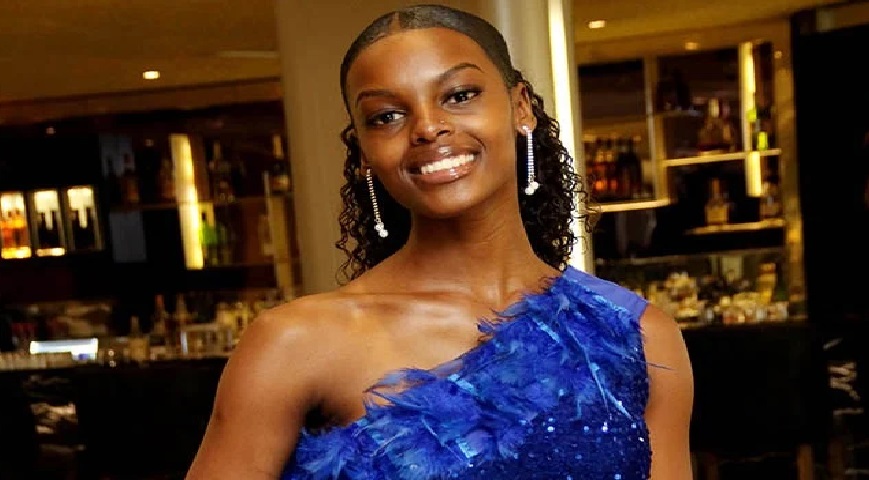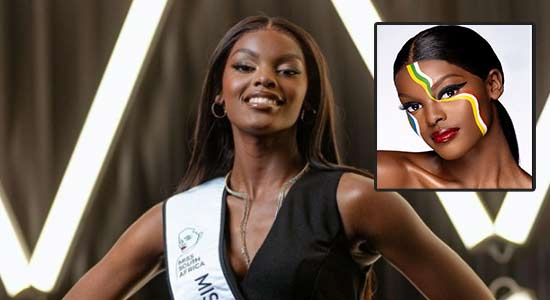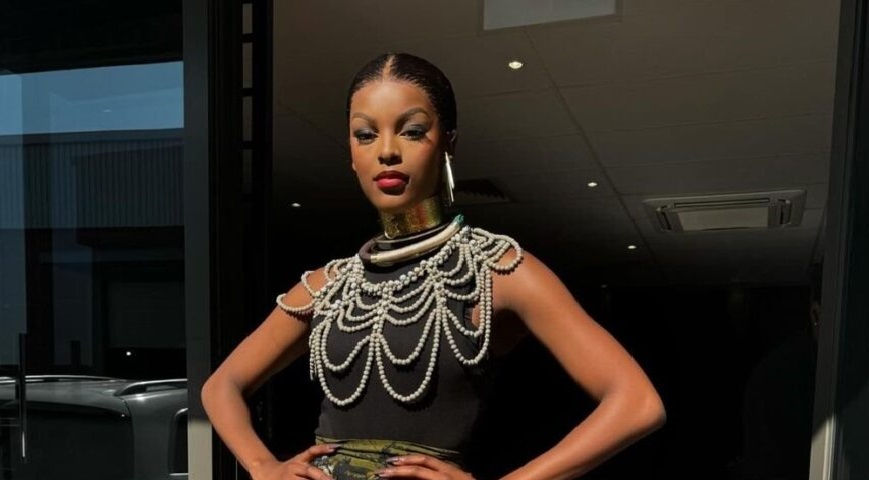When 23-year-old law student Chidimma Adetshina secured a coveted spot as a Miss South Africa finalist, her achievement sparked a vicious backlash, exposing a deep-seated seam of xenophobia in the country.
Adetshina’s name hints at her Nigerian heritage, prompting internet sleuths to delve into her background. They discovered that while her mother is South African, her father is Nigerian, and her family has roots in neighboring Mozambique.
"On behalf of South Africans, we don’t recognize her and that name! She better start packing and go home,” raged one commenter on X.

Did you read this?
But where is home? According to the pageant organizers, Adetshina is South African. She has stated in interviews that she was born in Soweto, near Johannesburg, and grew up in Cape Town.
Despite this, the “go-home” sentiment and even harsher attacks flooded social media. A petition demanding her removal from the high-profile televised competition amassed over 14,000 signatures before it was taken down.
The country’s Culture Minister, Gayton McKenzie, leader of the Patriotic Alliance party, also weighed in. “We truly cannot have Nigerians compete in our Miss SA competition. I wanna get all facts before I comment but it gives funny vibes already," he said on X.
This issue touches a nerve in South Africa that goes beyond the pageant stage. Adetshina declined a BBC request for an interview but told Sowetan Live that the online hate made her reconsider competing.
"I am representing a country, but I don’t feel the love from the people I’m representing," she said.
Adetshina added that the situation felt like "black-on-black hate," a form of xenophobia in South Africa known as "afrophobia," which targets other Africans. She noted that she was not the only contestant among the final 16 with a non-South African name, but she was receiving the bulk of the criticism.
A Miss South Africa spokesperson confirmed Adetshina's eligibility without directly addressing the comments she faced.
This is not an isolated incident. Last year, Melissa Nayimuli, another Miss South Africa contestant, faced similar vitriol because her father is Ugandan. Nayimuli told the BBC that she was unsurprised by the reaction, having experienced such hostility most of her life.

“It’s something I tried to run away from, but how do you run away from yourself?” she questioned.
Nayimuli recounted how she would constantly speak Xhosa, her mother tongue and one of South Africa’s official languages, to “prove her South African-ness.” She admitted feeling ashamed of her Ugandan identity due to the afrophobia she faced.
"I would not want to be seen with my father because his darker skin and East African features were a dead giveaway," she told the BBC. "At home, my father was my hero, but outside I saw him treated as an enemy."
University of the Free State sociologist Dr. Nombulelo Shange links this hostility to South Africa's history of racism and apartheid, which imposed a hierarchy privileging white people. She noted, "It shows the deep self-hate that we as black South Africans carry with us."
Dr. Shange added that South Africans have internalized oppressive racist reasoning such as colorism, where lighter skin tones are perceived as better. After apartheid ended in 1994, the ANC government welcomed African migrants and asylum seekers to reintegrate into the continent. However, with many South Africans struggling financially, foreigners have become targets for some frustrated by their situation.
Michael Morris, head of media at the South African Institute of Race Relations, explained, “There is a perception of outsiders as competitors for scarce jobs, resources, living space, and services.” He warned that the growing number of successful Africans in South Africa could “easily trigger resentment and violence.”
This climate of hostility has occasionally erupted into violence. In 2008, South Africa experienced its worst outbreak of violence against mostly African foreigners, resulting in over 60 deaths.
“There are black South Africans who will argue that Africans from elsewhere in the continent don’t belong in South Africa," Morris said.
Nayimuli experienced this animosity acutely when her father was arrested without explanation. Her family never spoke about it again, but last year's Miss South Africa provided an opportunity to address the issue directly, part of her healing process.
Seeing Adetshina face the same abuse, Nayimuli empathizes deeply. "She is not just a trending topic. She is a human being. She is a young woman getting bullied online - it's wrong, hurtful, and so dangerous," she said.
However, Nayimuli emphasized that xenophobes are a small minority, and many South Africans call for unity. Julius Malema, leader of the opposition Economic Freedom Fighters (EFF) party, defended Adetshina, saying, “Why do people want to say she’s from Nigeria or Mozambique? She was born here.”
Last year, Nayimuli ended her Miss South Africa journey with a call for African unity. “Let’s step into our power as Africa. We are one,” she said, to cheers from the audience. However, the discrimination has resurfaced.
Next Saturday, Adetshina will have her chance to take the stage, but it remains unclear if she will confront the haters head-on.









